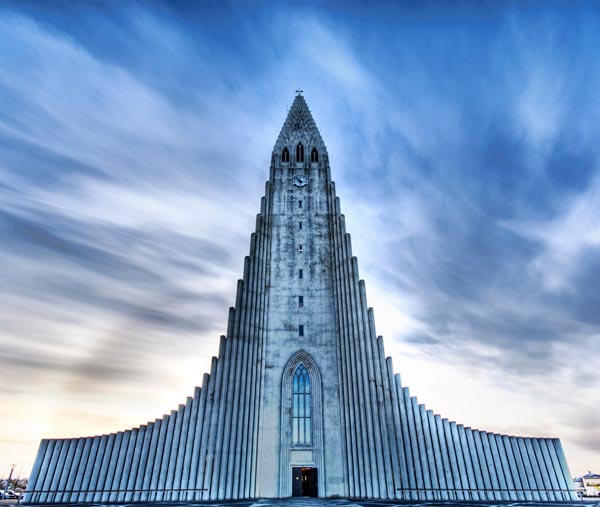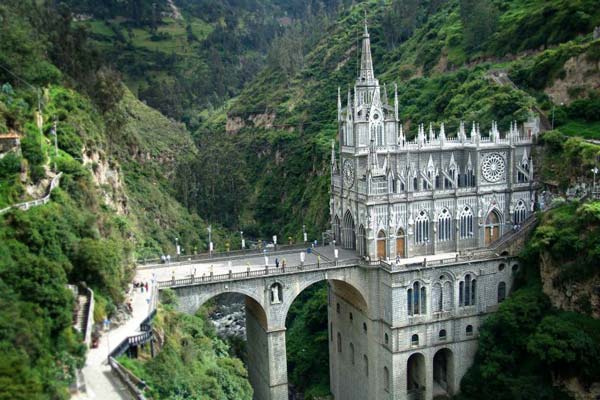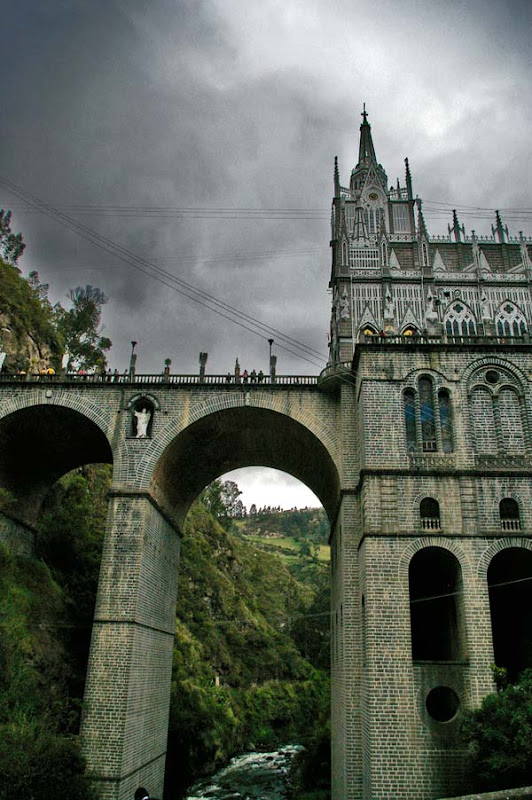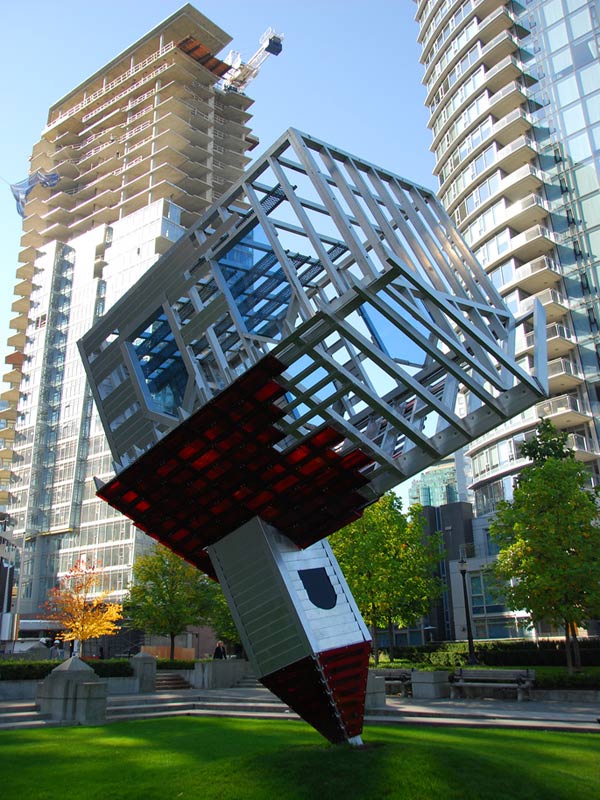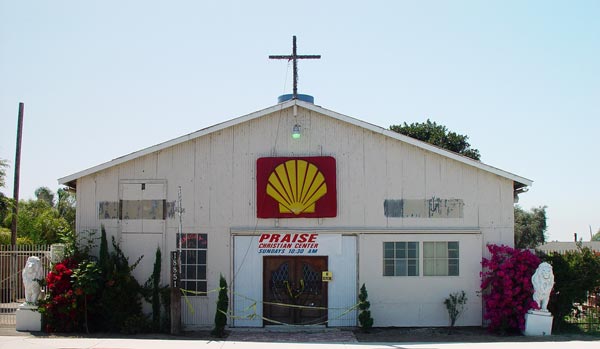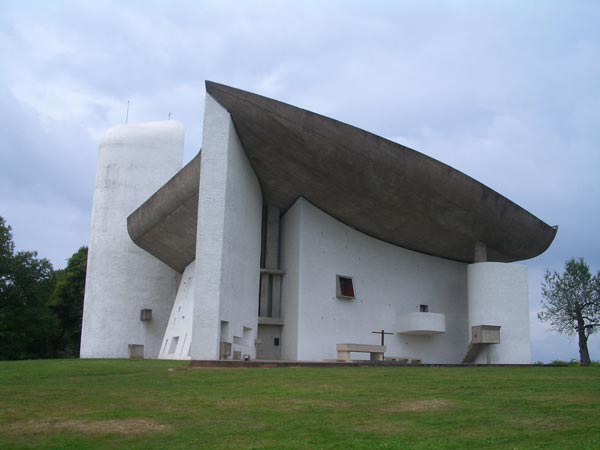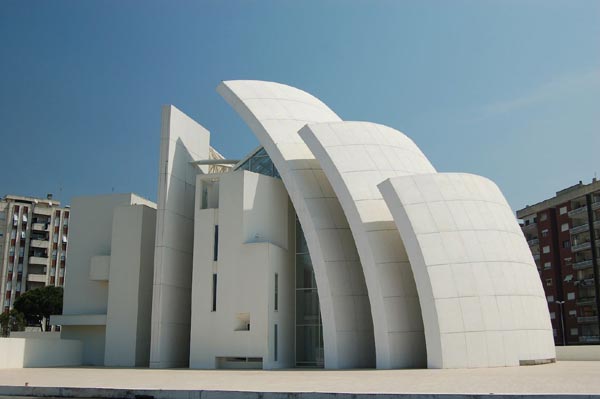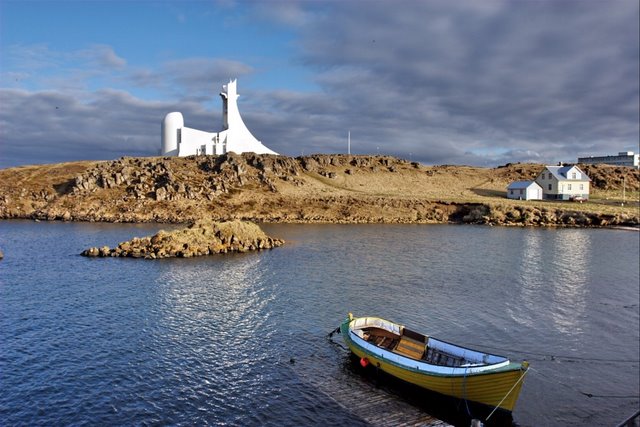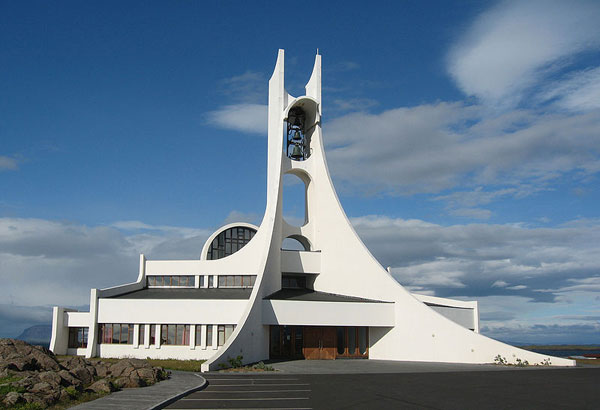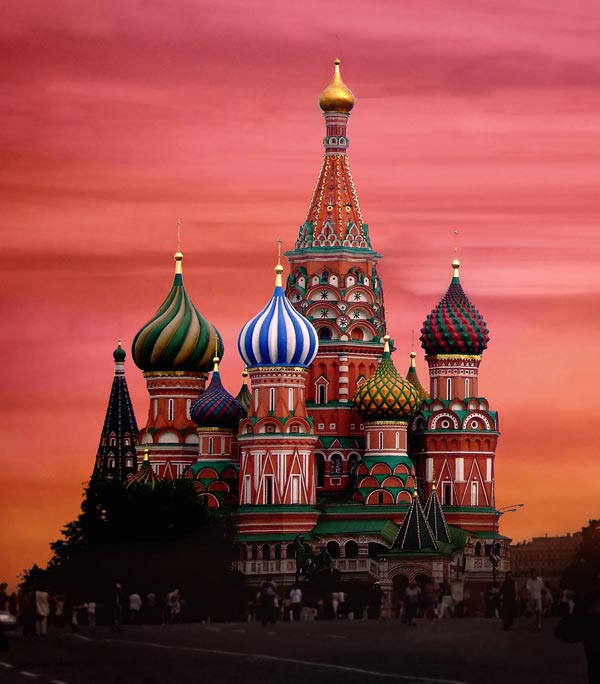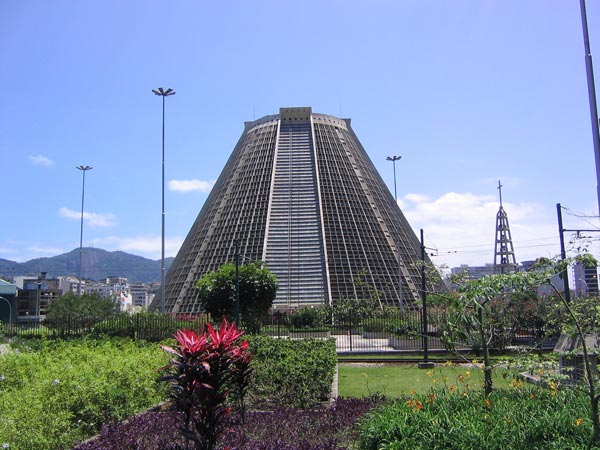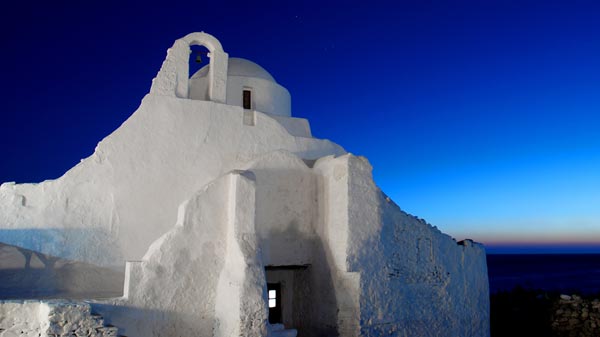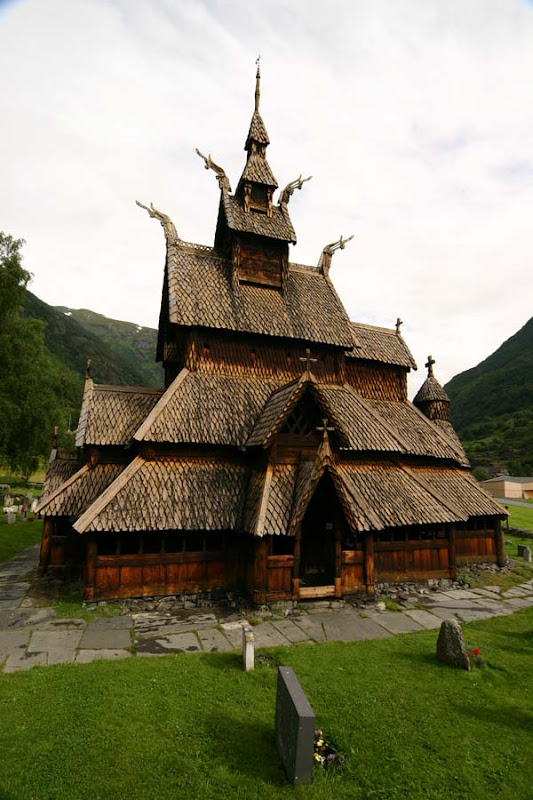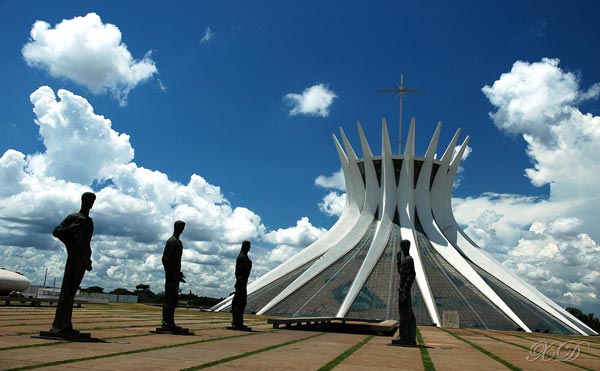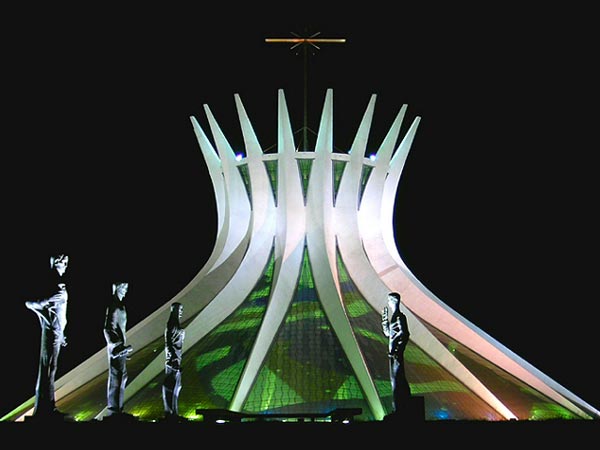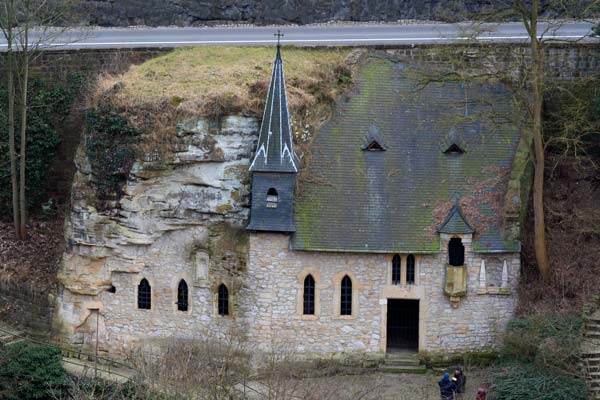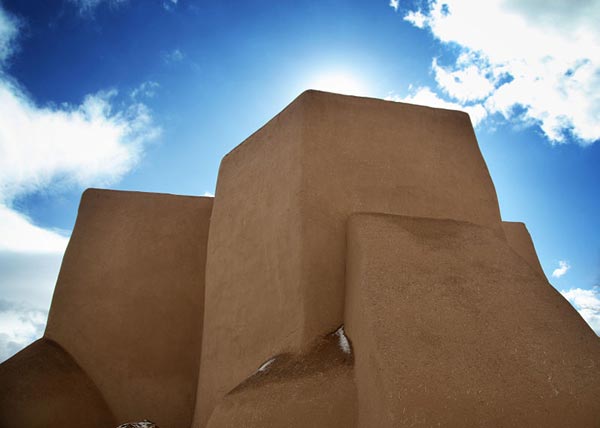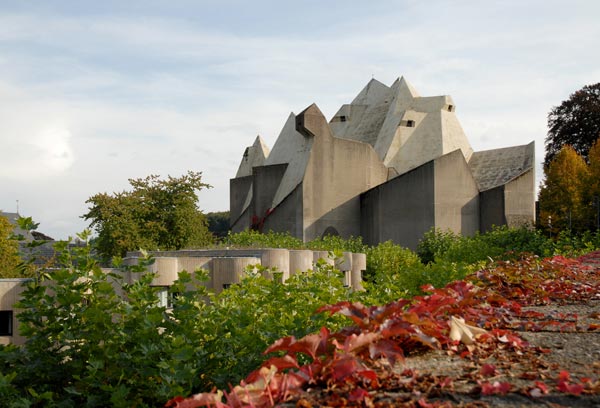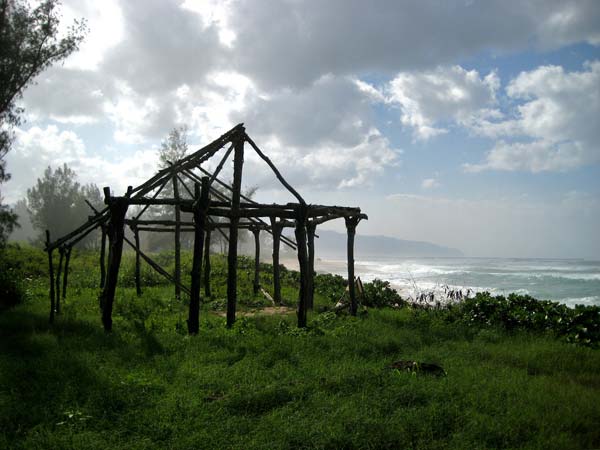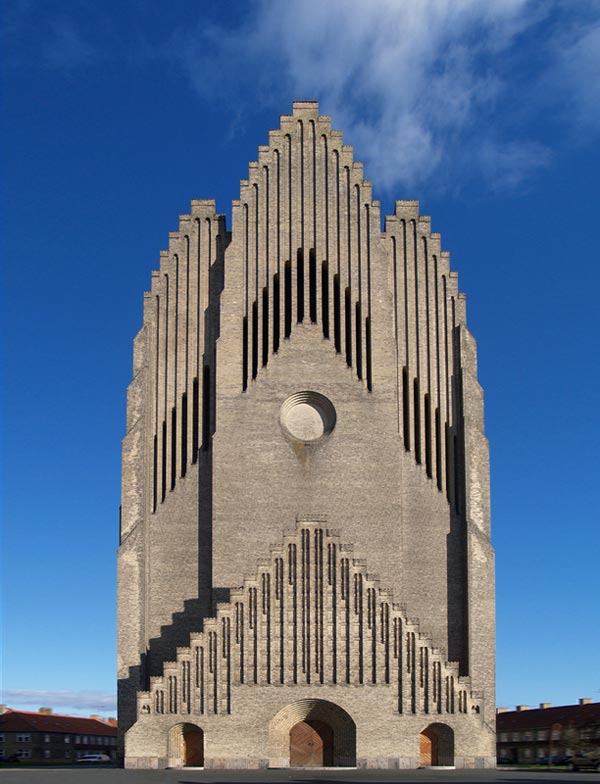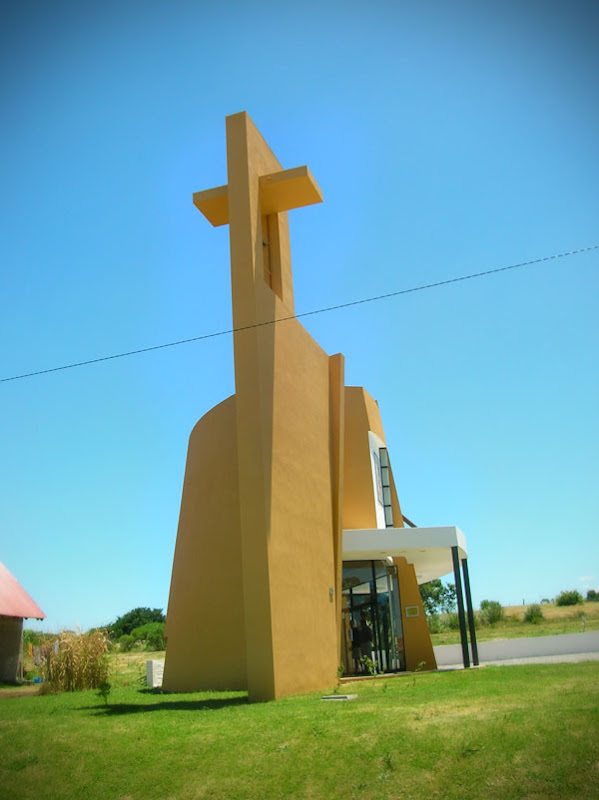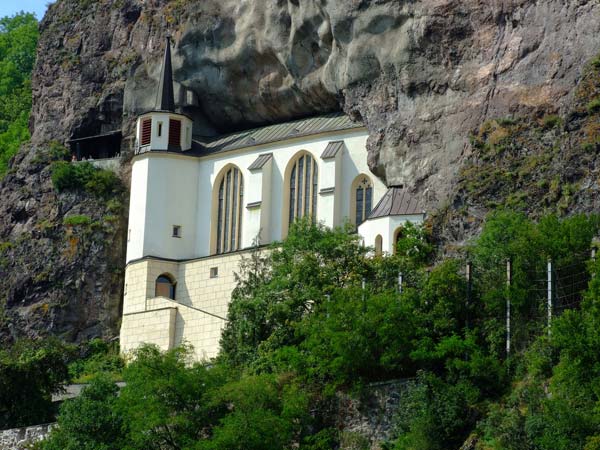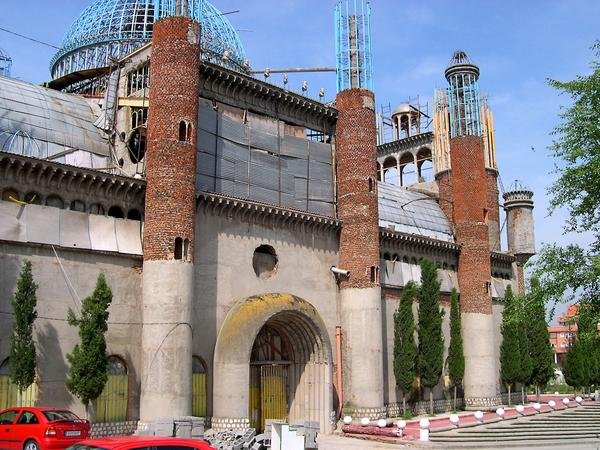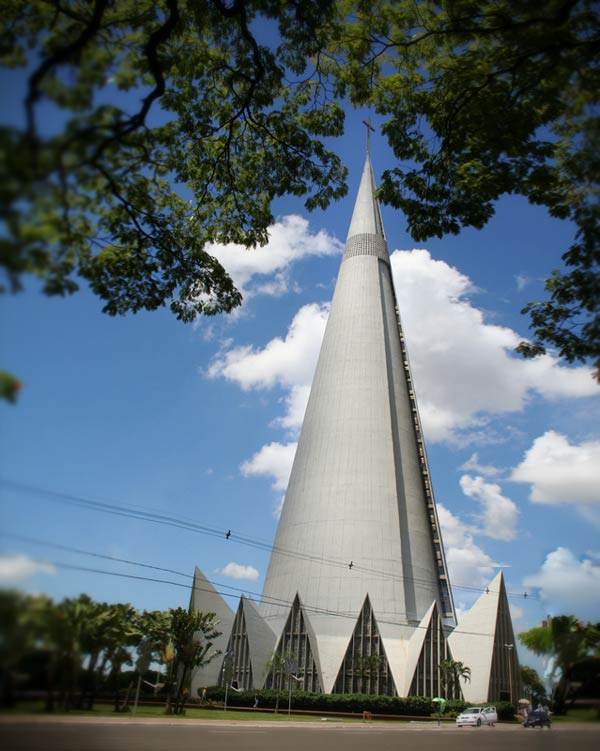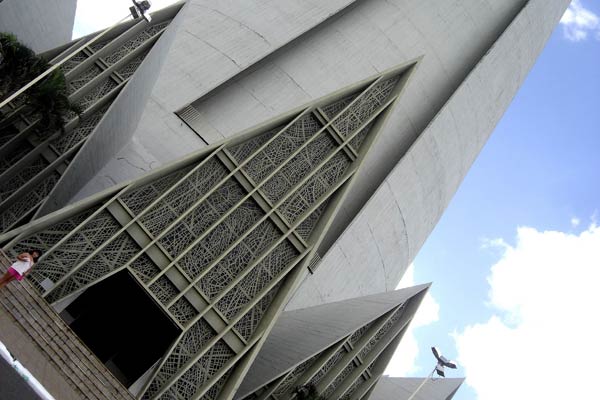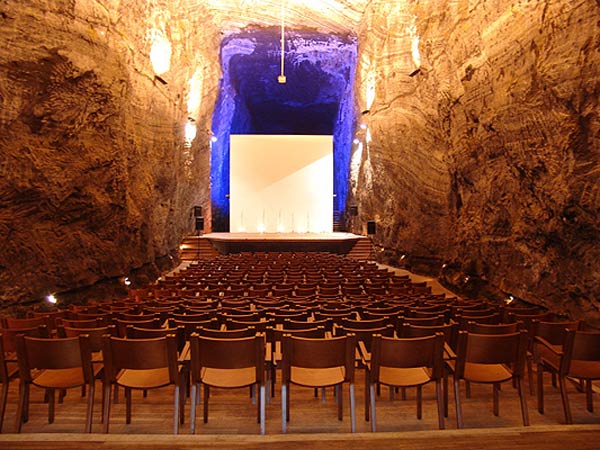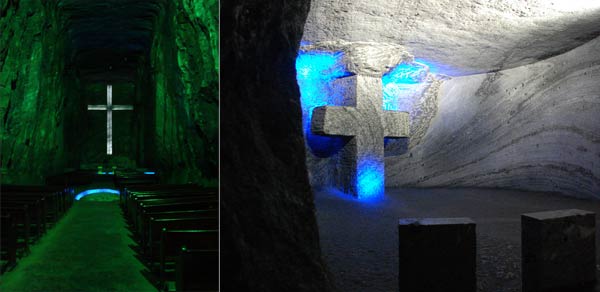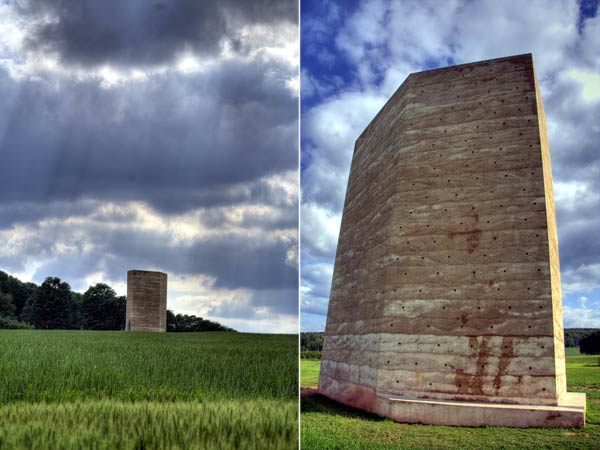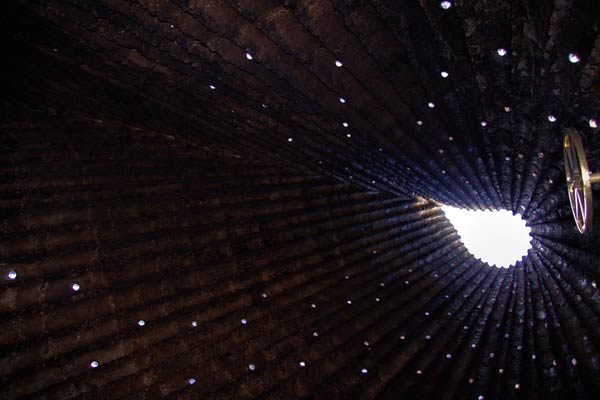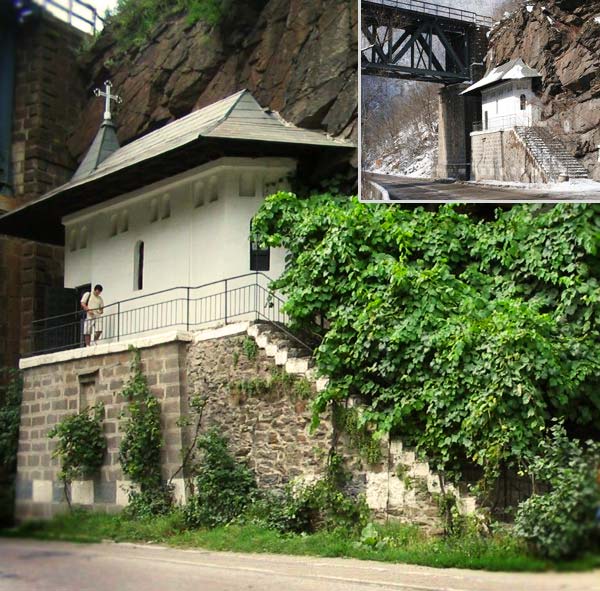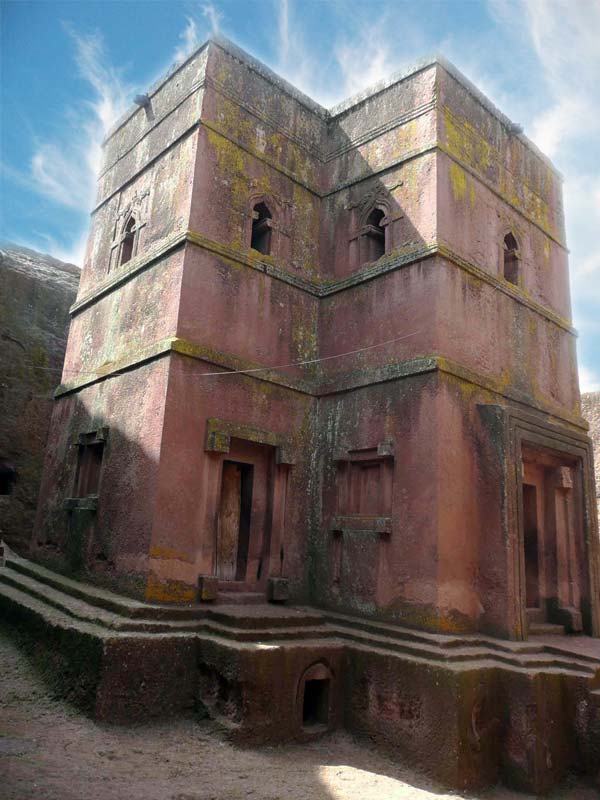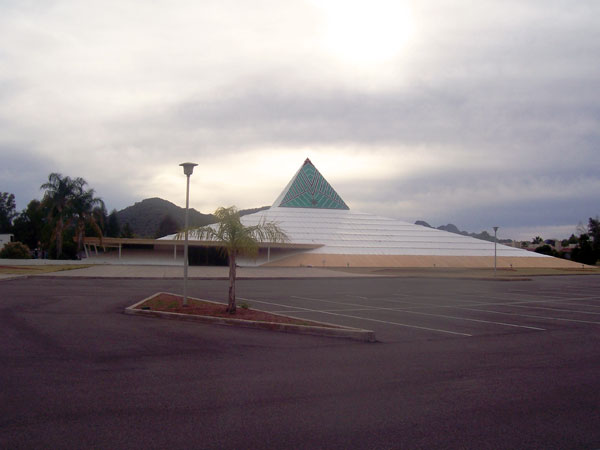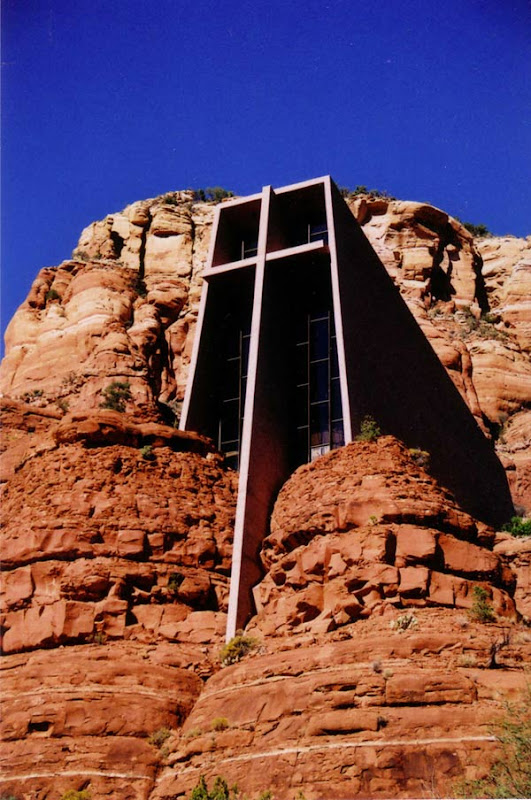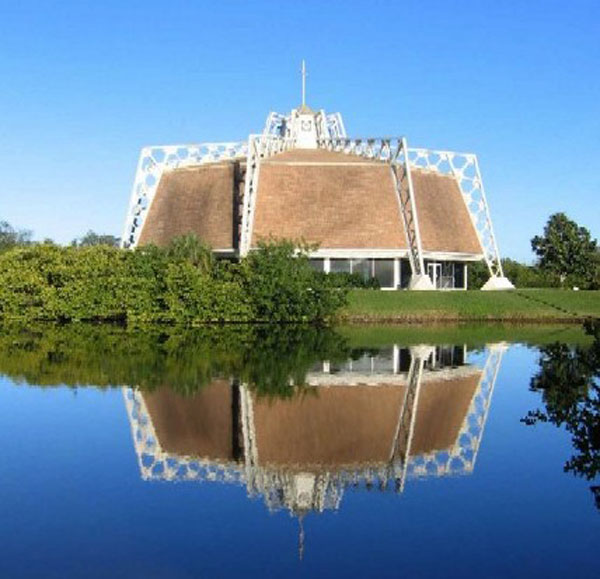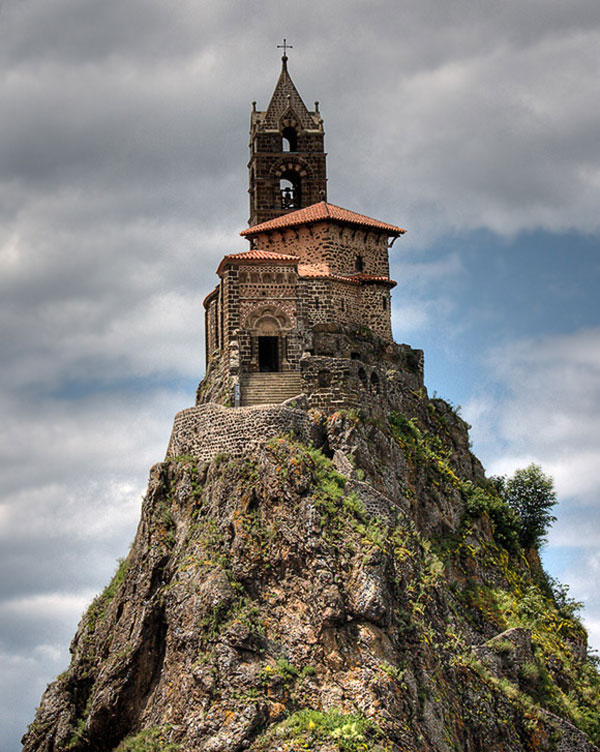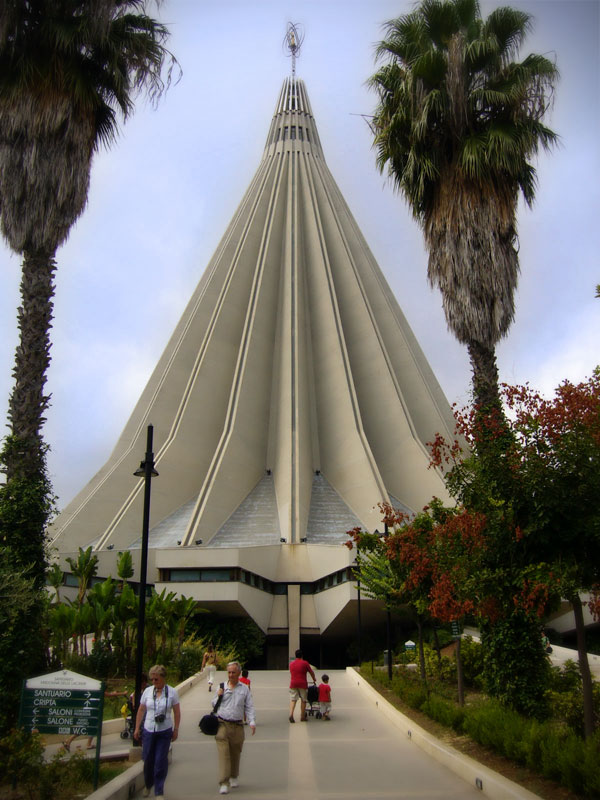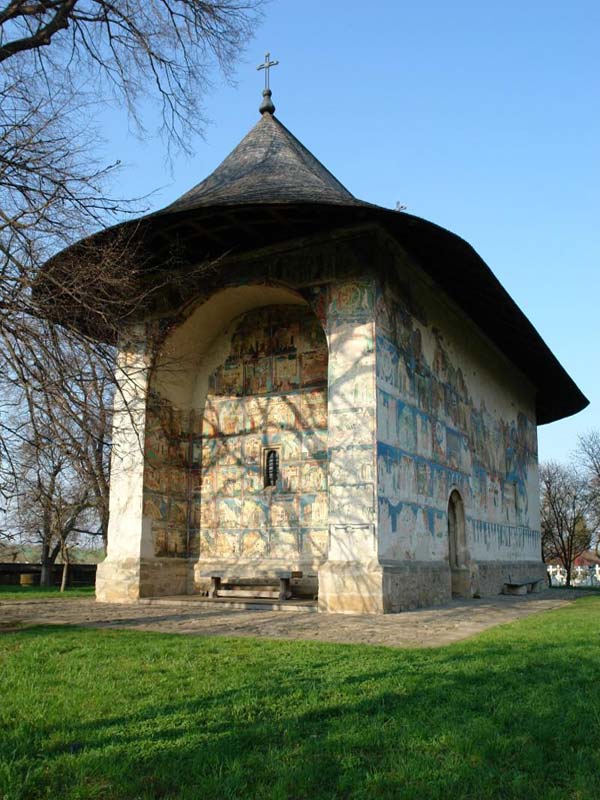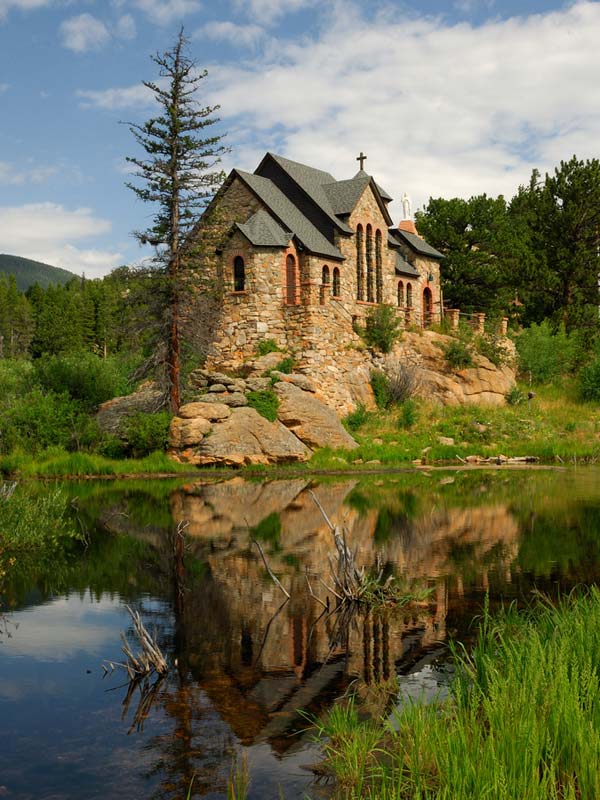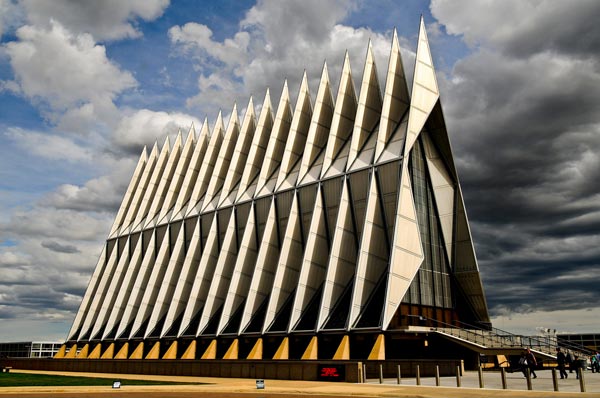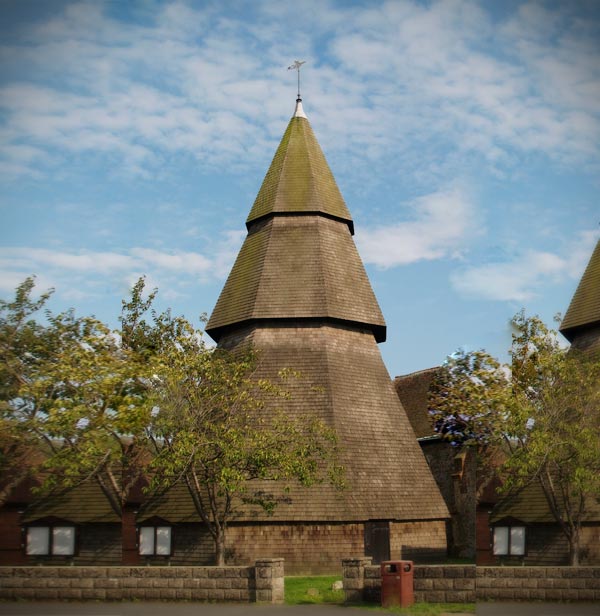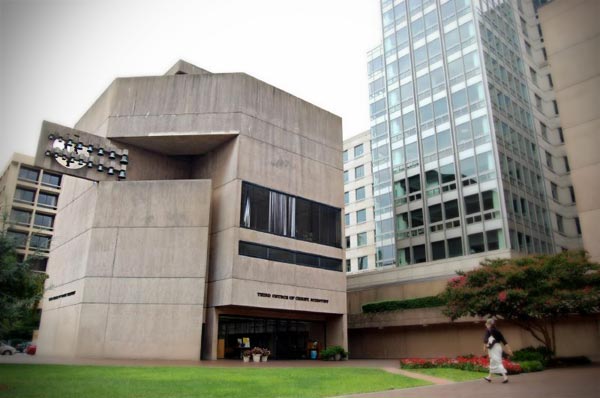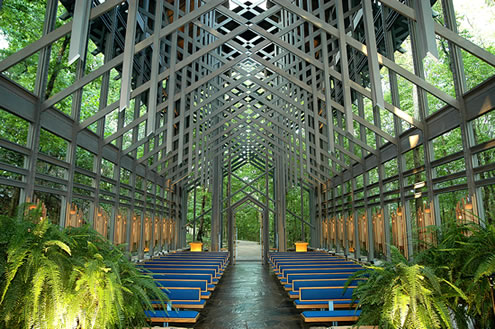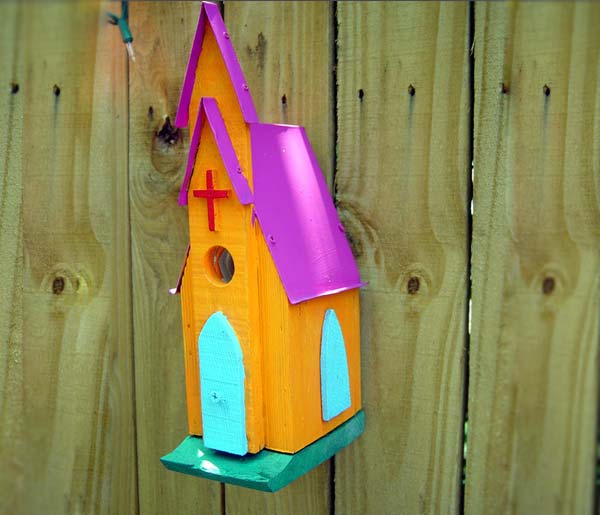I was a little sceptical when i clicked the link, but some of these buildings are really amazing. You can see the original post
here.
1. The Church of HallgrÃmur (ReykjavÃk, Iceland)
The Church of HallgrÃmur is a Lutheran parish church which is also a very tall one, reaching 74.5 meters (244 ft) height. It is the fourth tallest architectural structure in Iceland.
It took incredibly long to build it (38 years!) Construction work began in 1945 and ended in 1986.
Architect: Guðjón Samúelssondesign.
2. Las Lajas Cathedral (Colombia, South America)
Las Lajas Cathedral was built in 1916 inside the canyon of the Guaitara river where, according to local legend, the Virgin Mary appeared.
You can find it in southern Colombian Department of Nariño, municipality of Ipiales, near the border with Ecuador.
3. Device to Root Out Evil (Calgary, AB, Canada)
It was too hot for New York City; too hot for Stanford University. But a controversial, imposing sculpture by renowned international artist Dennis Oppenheim finally found a public home in laid-back Vancouver.
A country church is seen balancing on it’s steeple, as if it had been lifted by a terrific force and brought to the site as a device or method of rooting out evil forces.
(Update: In 2008 it was moved from Vancouver to Calgary, AB, Canada)
4. Chapel of St. Gildas (Brittany, France)
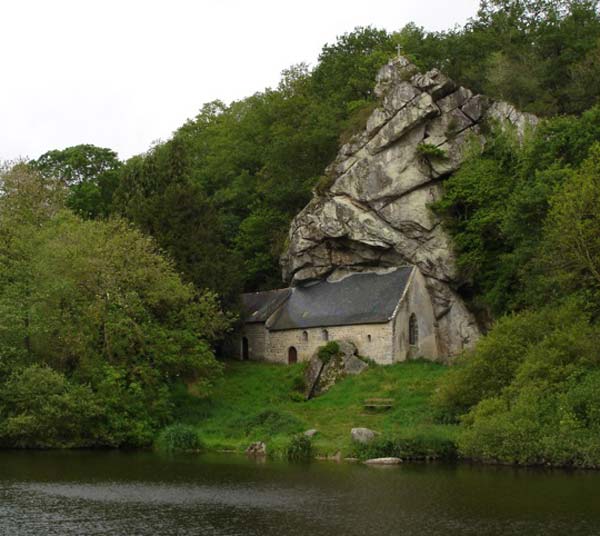
Mads: “This is the chapel of St-Gildas, which sits upon the bank of the Canal du Blavet in Brittany, France. “Built like a stone barn into the base of a bare rocky cliff, this was once a holy place of the Druids. Gildas appears to have travelled widely throughout the Celtic world of Corwall, Wales, Ireland and Scotland. He arrived in Brittany in about AD 540 and is said to have preached Christianity to the people from a rough pulpit, now contained within the chapel.†(from ‘Cruising French Waterways’ by Hugh McKnight p.150)â€
5. Shell Church (Huntington Beach, CA, USA)
Panda has no info on this one, only the location – Huntington Beach, CA, USA. The best thing about this church is a huge Shell logo.
6. Notre Dame du Haut (Ronchamp, France)
People say that the roof of this building looks like Elvis’ hair and Panda agree.
Informally known as Ronchamp, the chapel of Notre Dame du Haut was completed in 1954 and is considered one of the finest examples of architecture by the late French/Swiss architect Le Corbusier.
Interesting fact: when it rains, water pours off the slanted roof onto a fountain, creating a dramatic waterfall.
7. St Joseph Ukrainian Catholic Church (Chicago, IL, USA)
Panda doesn’t want to tell what kind of thing those domes remind him. Its massiveness and gray color looks like Soviet architecture. I was amazed when I read that it was actually in USA and not in Soviet Union.
St. Joseph Ukrainian Catholic church is best known for its ultra-modern thirteen gold domed roof symbolizing the twelve apostles and Jesus Christ as the largest center dome.
It is celebrating its 53 years, so it was built in 1956 (if panda’s calculations are right).
8. Jubilee Church (Rome, Italy)
Jubilee Church has very distinctive curved walls which look like sails and serve the engineering purpose of minimizing thermal peak loads in the interior space.
The walls are made from a special cement, which contain titanium dioxide, so it destroys air pollution.
According to Borgarello “When the titanium dioxide absorbs ultraviolet light, it becomes powerfully reactive, breaking down pollutants that come in contact with the concrete.â€
Architect: Richard Meier
Year: 1996
9. Grace Fellowship Baptist Church (Baltimore Road in Detroit, Michigan, USA)
This weird building is actually a church. Once it was famous for being “Detroit’s most beautiful Chinese-American restaurantâ€. Later it closed down and became the Omega Baptist Church and then the Grace Fellowship Baptist Church. Located at 265 Baltimore, MD, USA.
10. Basilica de Higuey (Dominican Republic)
Basilica de Higuey, inaugurated on January 21, 1971, is one of the most respected monuments of the Dominican Republic. It was built by French architects, and is located in the city of Higuey, Dominican Republic.
Panda thinks it is actually a huge basket, and not a church.
11. Church in Stykkishólmur (Iceland)
No, this is not an alien structure – it is another weird church in Iceland.
Panda has two different emails giving different info about the alien structure, oh I mean this church.
Version #1: “It was built in 1990 and the architect is Jón Haraldsson.â€
Version #2: “The church was in Stykkishólmur was built in 1879. The new church was than built in 1980. The church has drawn much of detention by its look from the sea and from land. In 1939 Fransiskusystur (nuns) built a monestry, school and the church. They also built a hospital witch is still in use.â€
12. St. Basil’s Cathedral (Moscow, Russia)
Cathedral of Saint Basil the Blessed was built in 1555 -1561 by Ivan IV (a.k.a Ivan the Terrible) to celebrate the capture of the Khanate of Kazan. The multi-tented church stands at the very heart of Moscow,the Red Square.
A legend says that Ivan had the architect,Postnik Yakovlev, blinded to prevent him from building a more magnificent building for anyone else. In fact, Postnik Yakovlev built a number of churches after Saint Basil’s.
Panda thinks that it may be huge lollypops and wants to taste it.
13. Cathedral of Rio de Janeiro (Brazil)
Cathedral of Rio de Janeiro was built between 1964 and 1979. Conical in form it has internal diameter of 96 meters (315 ft) and an overall height of 75 meters (246 ft).
The church has a standing-room capacity of 20,000 people.
Four rectilinear stained glass windows soar 64 meters (210 ft) from floor to ceiling.
Looks like a Pyramid of Egypt or Aztecs, doesn’t it?
14. Sagrada Familia (Barcelona, Spain)
Sagrada FamÃlia is a very massive Roman Catholic basilica under construction in Barcelona, Catalonia, Spain. Construction began in 1882 and continues to this day. A very famous architect Antoni Gaudà worked on the project for over 40 years, devoting the last 15 years of his life entirely to this endeavor.
In the center there is going to be a tower of Jesus Christ, surmounted by a giant cross; the tower’s total height will be 170 m (557,7ft).
Panda has never seen anything as fabulous as this church. If Panda wasn’t so lazy, he would even visit Spain to see it.
15. Paraportiani Church (Mykonos, Greece)
Panda will cite the author of the photo:
“Paraportianà Church is one of the most famous architectural structures in Greece. Its name means secondary gate, because it was built on the site of one of the gates of the Medieval stone walls. Some parts of this beautiful church date from 1425 and the rest was built during the 16th and 17th centuries. â€
16. Borgund Stave Church (Lærdal, Norway)
Stave churches may have been very usual all over medieval northwestern Europe but now you can only find them in Norway (that what Wikipedia says, but this is wrong)
Borgund stave church located in Borgund, Lærdal, Norway is the best preserved of Norway’s 28 extant stave churches. This wooden church, probably built in the end of the
12th century, has not changed structure or had a major reconstruction since the date it was built.
Interesting fact: the church is also featured as a Wonder for the Viking civilization in the video game Age of Empires II: The Age of Kings.
17. The Green church (Buenos Aires, Argentina)
Bamboo leaves!?! Panda wants to climb into this church and sit here all day.
The only info that Panda has: “a parish church in Buenos Aires, Argentina known as the “Huerto de Olivosâ€, or “Garden of Olives,†most likely a reference Gethsemane, on the Mount of Olives†Michael
18. Church Ruins (Goreme, Turkey)
The rock cut ruins of a church by persecuted Christians. Not sure when it was built, but definitely look very ancient. How did those guys carved the inside of these rocks?
The Cappadocia valley, where this church stands, is very popular for its rocks that the people of the villages at the heart of the Cappadocia Region carved out to form houses, churches, monasteries.
There are an estimated 150 churches and several monasteries in the canyon between the villages of Ihlara and Selime.
Those rocks are volcanic deposits, so that means they are soft rocks, making it possible to carve such structures.
19. Duomo, Milan Cathedral (Milan, Italy)
Mark Twain once said the following of the Duomo in Milan in his work, Innocents Abroad:
“They say that the Cathedral of Milan is second only to St. Peter’s at Rome. I cannot understand how it can be second to anything made by human hands.â€
Panda got really bored writing the descriptions, check the link below.
20. Paoay Church a.k.a St. Augustine Parish (Philippines)
Paoay Church reminds me of Aztec architecture. It looks very massive and strong. The walls of the church are 1.67 meters thick and are supported by 24 carved and massive buttresses.
Its construction started in 1704 and was completed in 1894 by the Augustinian friars led by Fr. Antonio Estavillo. It is said, that Its construction primarily was intended to withstand earthquakes. And it could test the strength of the walls very soon, because the church was damaged by an earthquake in 1706 and 1927.
The design of the church is a mixture of Gothic, Oriental and Baroque influence.
21. Cathedral of Brasilia (Brasilia, Brazil)
This is a very famous Cathedral of BrasÃlia designed by Oscar Niemeyer. Panda finds It modern but somehow childish. These columns, having hyperbolic section and weighing 90 t, represent two hands moving upwards to heaven.
The construction was finished in 1970.
22. St. Michael’s Golden-Domed Monastery (Kiev, Ukraine)
St. Michael’s Golden-Domed Monastery is a functioning monastery in Kiev, Ukraine. The monastery is located on the Western side of the Dnieper River on the edge of a bluff northeast of the St. Sophia Cathedral. The site is located in the historic and administrative Uppertown and overlooks the city’s historical commercial and merchant quarter, the Podil neighbourhood.
Originally built in the Middle Ages by Sviatopolk II Iziaslavych, the monastery comprises the Cathedral itself (Mykhaylivs’kyi zolotoverkhyi sobor), the refectory of St. John the Divine, built in 1713, the Economic Gates (Ekonomichna vrata), constructed in 1760 and the monastery’s bell tower, which was added circa 1716–1719. The exterior of the structure was rebuilt in the Ukrainian Baroque style in the 18th century while the interior remained in its original Byzantine style. The cathedral was demolished by the Soviet authorities in the 1930s, but was recently reconstructed after Ukraine gained its independence.
23. Church in a Hill (Luxembourg)
This church is built into the hillside on which it perches. One of the reasons the Grand Duchy of Luxembourg has survived as an independent state for a thousand years against such powerful neighbors as Germany and France, is that the area is eminently fortifiable.
24. San Francisco de Asis Church (Ranchos de Taos, New Mexico)
San Francisco de Asis Church is a small mission in Ranchos de Taos, New Mexico. Construction on the church began around 1772 and was completed in 1815 by Franciscan Fathers and its patron is Saint Francis of Assisi. It is made of adobe as are many of the Spanish missions in New Mexico. It a few miles south of Taos Pueblo and has inspired among the greatest number of depictions of any building in the United States. It was the subject of four paintings by Georgia O’Keeffe,
and photographs by Ansel Adams and Paul Strand. Georgia O’Keeffe described it as, “one of the most beautiful buildings left in the United States by the early Spaniards.â€
25. Pilgrimage Church(Neviges, Germany)
Pilgrimage church designed by Gottfried Böhm and constructed during the period of 1963-1972. The sunken cathedral in autumn colors. Böhm used the terrain to lessen the impact of the enormous church on its small scale context.
26. Church with an A (Madrid, Spain)
A Parish Church at the beginning of Alcalde Sainz de Baranda St. (Madrid, Spain).
27. Mr. Eko’s Church (The Island, near the beach camp)
Architects: Eko and Charlie. Built in the 3rd season of Lost series.
28. Grundtvig’s Church, (Copenhagen, Denmark)
Grundtvig’s Church (Danish: Grundtvigs Kirke) is located in the Bispebjerg district of Copenhagen, Denmark. It is a rare example of expressionist church architecture. Due to its unusual appearance, it is one of the best known churches in the city.
29. Catholic Church (Uruguay, South America)
30. The Felsenkirche a.k.a. Church of the Rock, (Idar-Oberstein, Germany).
The Felsenkirche (â€Church of the Rockâ€), a church built into a natural niche in the rocks, rises high above the houses of Oberstein. Nicely blends into the mountain, making all this place magical.
31. Don Justo’s Self Built Cathedral (Mejorada del Campo near Madrid, Spain)
“Justo Gallego MartÃnez is building his very own Cathedral in Mejorada del Campo near Madrid, Spain
This is no “model” cathedral and he is neither a qualified architect, nor engineer, nor bricklayer — he is a farmer. “The plans have only ever existed in my head” and have evolved over time in response to opportunity and inspiration. Nor does he have formal planning permission from the authorities of Mejorada del Campo — the town in which it is located (20 km from Madrid under the flight-path to the Barajas airport).
He has financed his work by rent from some inherited farmland — some of which he has already sold. Donations from supporters and visitors are welcomed.
The columns are moulded using old petrol drums, the window arches carry the marks of the tires they were moulded in and bicycle wheels have been used as pulleys.â€
32. Cathedral of Maringa (Parana, Brazil)
This is a Roman Catholic cathedral located in downtown Maringá, Paraná, Brazil, measuring 124 m high. It was completed in 1972 and is the tallest church in South America and the 16th tallest in the world.
Architect José Augusto Bellucci was inspired by the Soviet sputnik satellites when he projected the modern design with conical shape of the cathedral, which was idealized by the archbishop Dom Jaime Luiz Coelho.
33. Salt Cathedral of Zipaquira, (Cundinamarca, Colombia)
Catedral de Sal (Salt Cathedral) in Zipaquirá, about 25 miles north of Bogotá, is an underground church built in a tunnel of salt mines deep inside a salt mountain. It is built into a space left by salt mining; everything you see here is salt. As you descend into the church, you pass 14 small chapels representing the stations of the suffering of Christ. The sanctuary at the bottom has three sections, representing the birth, life, and death of Jesus.
The first Salt Cathedral was consecrated in 1954, but structural problems and safety concerns led the authorities to shut down the sanctuary in 1990. The current church was built between 1991 and 1996 about 200 feet below the old sanctuary, again using caves left behind by previous mining operations.
34. Bruder Klaus Chapel (Mechernich, southern Germany)
A concrete chapel on the edge of a field in Mechernich, southern Germany, built by local farmers in honor of their patron saint, the 15th-century hermit Bruder Klaus,†according to
icon.
35. Written Stone (Monastery, Romania)
Local tradition confesses that,during the construction of a railway , at the opening of the a tunnel, it was found an icon painted in stone representing the Holy Trinity. The monastery was built at the opening of the tunnel The monastery was built at the opening of the tunnel on the rock.
36. Church of St. George(Lalibela, Ethiopia)
Possibly the most famous of Lalibeli’s churches, the Church of St. George is completely carved out of stone in the shape of a cross.
37. Trendsetters Church (Phoenix, AZ, USA)
Trendsetters Church in Phoenix, AZ, built in 1973 by Neil Frisby as Capstone Cathedral. I’m sure Neil Frisby visited Egypt just before designing this church.
38. Chapel in the Rock (Arizona, USA)
This facinating Roman Catholic church is literally built into the rock. The views from outside are unbelievable but the serenity inside is awesome
Some say, that Chapel in the Rock can move even the non-religious.
39. The Wireman Chapel at Eckerd College (St. Petersburg, Florida, USA)
A kid on the tour to Eckerd College once said it looked like a “Jesus spider from outer space.†Inspired by 20th-century architect
Eero Saarinen, the Chapel was designed by the highly respected Chicago architectural firm of Perkins and Will. Its key design features are its octagonal shape and in-the-round seating, the oculus at the center of the roof that directs sunlight to the center of the sanctuary, the lower glass panels which reflect light from the water outside to the interior, and the girders which recall the flying buttresses of the medieval cathedral, instilling a sense of timelessness in a contemporary structure.
40. Saint-Michel d’Aiguilhe chapel (Le Puy-en-Velay, France)
Perhaps one of the most remarkable sights in France, a chapel perched on a volcanic plug. This is the Rock of Aiguilhe, on the edge of the town of Puy en Velay, in the Auvergne. The Chapelle Saint-Michel has stood there for 1042 years, since Bishop Gothescalk had it built in 962 on his return from a pilgrimage to Santiago del Compostella in Galicia. In 1955 workers found relics under the alter that had been there since it was built.
41.Santuario Madonna della Lacrime (Sicily, Italy)
43.The Hermitage(Island of San Juan de Gaztelugatxe, Spain)
The small church, which is usually closed, dates from the 10th century and seems to have come from the Knights Templar. In the year 1053 it was donated, by don Iñigo López Lord of Biscay, to the monastery of San Juan de la Peña near Jaca in Huesca. Medieval burials from the 9th and 12th centuries have been found on the esplanade and in the hermitage.
In 1593 it was attacked and sacked by Francis Drake. Among other incidents, it has caught fire several times. On the November 10, 1978, it was destroyed in one such fire. Two years later, on June 24, 1980 it was reinaugurated. The hermitage belongs to the parish of San Pelayo in Bakio.
The hermitage also houses various votive offerings from sailors who survived shipwrecks.
44. Church of Arbore (Suceava County, Romania)
The church of Arbore is dedicated to Saint John the Baptist. Its painted church was the first Moldavian painted church to be included on the UNESCO
World Heritage List. The monastery and the commune are named after the
boyar Luca Arbore who built the church in 1503. The erection of the church was completed in about 5 months. Its exterior paintings date from 1541 and were made by DragoÅŸ Coman. Painting the church took about 40 years.
45.The Chapel on the Rock (Allenspark, Colorado, USA)
The founder of Camp St. Malo, Monsignor Joseph Bosetti, had for years entertained an idea that one day he would build a chapel on this site. In 1916 he and two friends observed a falling meteor during the night and in his search for the remnants the next morning, he came across a large rock. The beauty of the land inspired the priest and he remembered Jesus’ words to Peter: “Upon this rock, I will build my Church.†(Matt 16:18).
Vowing one day to build a chapel here, Msgr. Bosetti prayed for nearly 20 years to acquire the funds. During time, he found himself in a constant battle with the Colorado Highway department which had plans to dynamite the enormous piece of granite to both widen and straighten the curve in the road.
Eventually, Msgr. Bosetti won the battle and years later, when the chapel became a reality, it was reported that a group of engineers who laid out the road came to the dedication and thanked him for his perseverance.
The chapel was designed by noted Denver architect Jacques Benedict.
In 1993, Pope John Paul II visited the chapel during his trip to Denver for the World Youth Day and bestowed his personal blessing on the chapel.
46. Cadet Chapel (Air Force Academy, Colorado, USA)
The United States Air Force Academy Cadet Chapel, completed in 1962, is the distinguishing feature of the Cadet Area at the United States Air Force Academy. It was designed by renowned architect Walter Netsch of Skidmore, Owings and Merrill of Chicago. Originally controversial in its design, the Cadet Chapel has become a classic and highly regarded example of modernist architecture. The Cadet Chapel was awarded the American Institute of Architects’ National 25 Year Award in 1996, and as part of the Cadet Area, was named a U.S. National Historic Landmark in 2004.
47.St. Augustine Church (Brookland, Kent, UK)
“Yes the late 12th century, wooden, bell tower is separate from the rest of the church! Apparently it is the only one of its size and shape in the country. Originally it was open to the elements the cladding being addedin the 15th century. You almost can’t take a picture of this lovely church without getting that litter bin or telephone wires (or both) in frame; the litter bin is even in all the guide books!†–
kcm7648.Third Church of Christ, Scientist (Washington, DC, USA)
“This building is not only hideous but it is unwelcoming and, as anyone who has seen the
J. Edgar Hoover Buildingwould agree, it is extremely difficult and expensive to maintain. It does place undue monetary restrictions on how the church can serve the city because the church has to sink so much into the maintenance of the building.†(
districtdiaries.blogspot.com)
49.Thorncrown Chapel (Eureka Springs, AR, USA)
“Just outside Eureka Springs in the Arkansas Ozarks–itself a divine place–lies this small, peaceful, non-denominational chapel. Even as I feel the distance between the organized religion I was raised with and myself grow, places like this remind me of why the underlying faith meant and continues to mean so much to me.
Designed by E. Fay Jones in 1979, completed in July 1980.â€
Clinton Steeds50. Church Birdhouse (Greer, South Carolina, USA)
A colorful birdhouse, made in the shape of a church, hanging on a fence of someones yard in Greer, South Carolina. The bird living in this church must be a bird-priest raising donations from other birds in a form of seeds.
.jpg)


